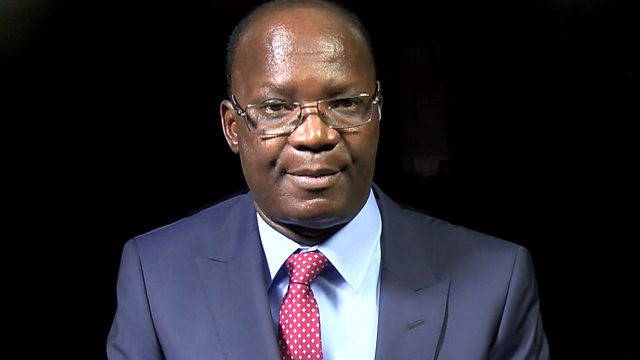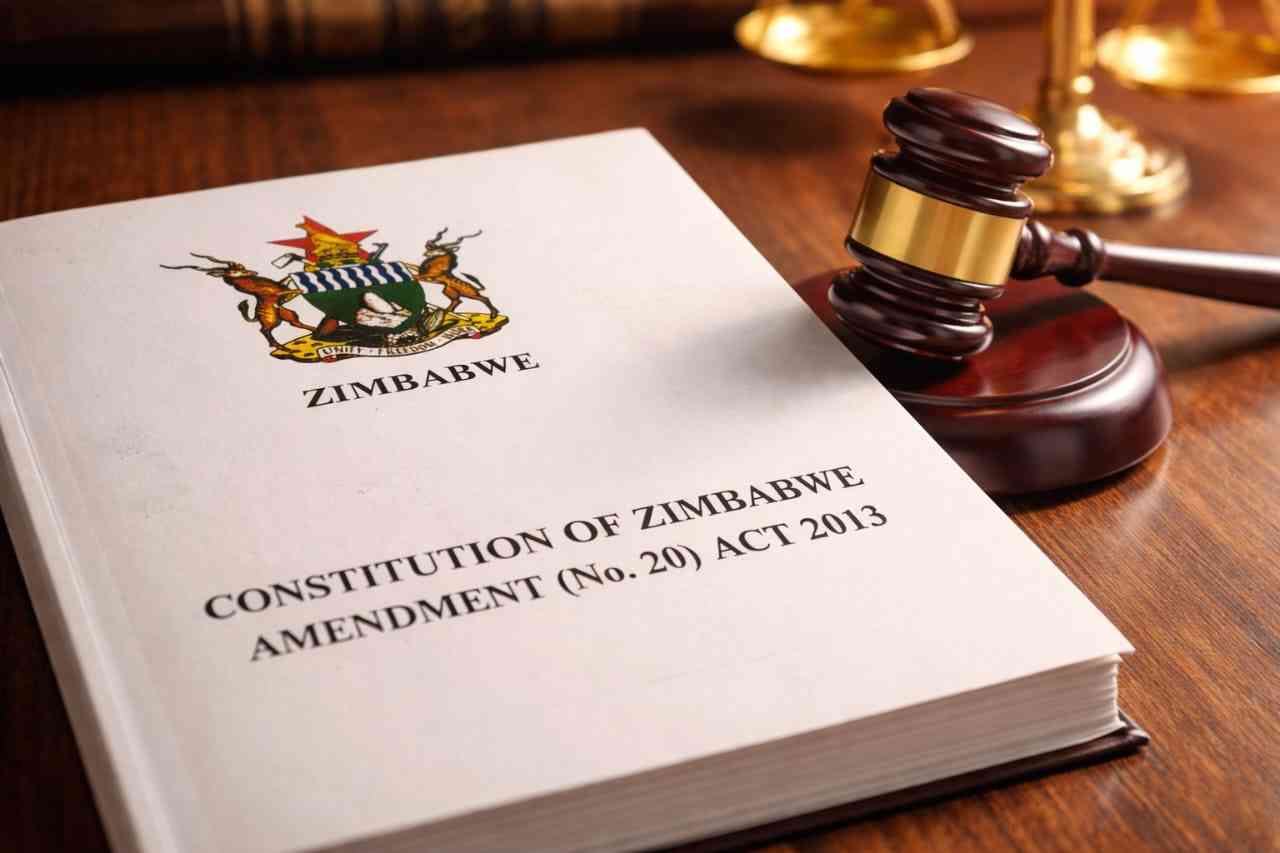
President Emmerson Mnangagwa’s programme to issue title deeds to beneficiaries of the fast track land reform programme has been shrouded in controversy, with questions swirling around its legality.
Mnangagwa last week presided over the issuance of the documents to war veterans from Mashonaland Central amid fierce debate about motives of the programme.
The Presidential Tittle Deeds Programme was launched by the 82 year-old rule in December last year at his Precabe Farm in Kwekwe and is being championed by the Land Tenure Implementation Committtee chaired by businessman Kudakwashe Tagwirei.
Tagwirei says the programme is converting 99-year leases, offer letters, and permits into bankable, registrable, and transferable deeds of ownership.
Our reporter Everson Mushava (EM) spoke to commentator Mbizvo Jealousy Mawarire (MJM) to get his views on the title deeds programme. Below are excerpts from the interview.
EM: Mawirire, you have been on record saying the Land Implementation Committee is an illegal establishment meant to scam farmers. How did you arrive at that conclusion?
MJM: There is a Zimbabwe Land Commission provided in the onstitution to perform that function.
The constitution and the Land Commission Act are very clear on the functions of the Zimbabwe Land Commission.
- Cars up for grabs in batteries competition
- Africa should be better prepared for Europe’s security funding shift
- Sadc PF wants right to health enforceable
- AG’s report shows growing impunity at the heart of govt operation
Keep Reading
The Zimbabwe Land Commission is the one that is seized with the issues of land tenure, with the alienation and allocation of state-owned land.
So, having a parallel structure like the Land Tenure Implementation Committee is an affront on the constitution, an illegality. It has no legal basis.
So, that's the basis on which I am saying that what Tagwirei and President Mnangagwa are doing is illegal because it is not provided for in the constitution and it is not being done by the rightful constitutional organ, the Zimbabwe Land Commission.
Mnangagwa and Tagwirei are trying to create a new land tenure system without following the law.
EM: So what should have been done to make the committee legal?
MJM: If it was a programme that was initiated by the Zimbabwe Land Commission or by the Agriculture minister working with the Zimbabwe Land Commission, it could have been an entity provided for in the constitution and legislated through an Act of Parliament.
In Zimbabwe, the law is very clear. If you read section 290 of the constitution and section 72 subsection 4, it is very clear that all agricultural land, which is the land that we are talking about, is vested in the state.
So, if you want to introduce freehold land tenure system, you have to deal with the constitution, you have to amend those provisions in the constitution, which outlaw private ownership of agricultural land.
In law, there is a principle called expressio unius est exclusion alterius, which means the express mention of one thing is the exclusion of another.
It, therefore, means that the express declaration by the constitution that all agricultural land vests in the state is an exclusion of private ownership of the same agricultural land.
Our competent lawyers will agree with me.
So the law has to be amended first if we want to introduce private ownership of agricultural land.
But the challenge, for Mnanggawa, with amending those constitutional provisions is that he has to go for a referendum because these are provisions that are contained in Chapter 16 of the Zimbabwe constitution.
Mnangagawa, we have seen even with attempts to extend his presidential term limit, is afraid of a referendum.
He's afraid of facing the people because he knows what he is doing has no support among the generality of our people.
So, any change which has a fundamental bearing either on governance, like presidential term limits, or on the land tenure system in the country, has to be subjected to a referendum.
And this is what he's running away from, and that's why he then created a parallel structure called the Land Tenure Implementation Committee.
EM: What do you think is motivating the president to violate the law as you are saying?
MJM: This is a continuation of what he has always been doing. When he became vice-president in 2014, there was an agricultural programme called Operation Maguta, which was being run in conjunction with the Zimbabwe National Army.
(The late) president Robert Mugabe deliberately roped in army generals in order to plug loopholes in terms of corruption that was happening with the distribution of inputs.
This Operation Maguta was structured in such a way that the government had direct contracts with producers of inputs, like seed suppliers, Seedco, and fertiliser producers like Windmill.
The input producing companies did well then and the government was also getting value for money.
But when Mnangagwa became VP, and the Ministry of Agriculture fell under his supervision and he abolished the system and brought in middlemen, dealers.
Through command agriculture Mnangagwa de-institutionalised the operations of Operation Maguta, and introduced middlemen, his home boys, Tagwirei and Temba Nkatazo.
These are the same characters that you now see being involved with the Land Tenure Implementation Committee.
EM: For the benefit of those who haven't had the opportunity to understand how the Land Tenure Implementation Committee will work, can you just briefly explain how the title deeds programme could be used for looting?
MJM: You are raising a very fundamental thing.
If the Land Tenure Implementation Committee was a transparent organisation, carrying out a transparent government policy, surely there should have been some document somewhere, which should be in the public domain, which should have been brought before Parliament for the parliamentarians to interact with that document.
But what is more interesting is that, only on Monday, we were being told that the title deed programme is being launched, launched for the second time?.
Wasn’t it launched at Precab Farm in December last year where some people were automatically given title deeds?
I understand the process of giving people title deeds, it’s not done at rallies in the manner Mangagwa is doing.
EM: In your view how the issuance of title deeds should be done?
MJM: There should be a surveying of the properties, proper geo-referencing of the farms or plots.
There should be proper GIS informed demarcations of these farms, proper, so that you know where your farm starts and where it ends.
Remember most of these farms are being sub-divided, there is need for proper roads, approved by the different local authorities, for the subdivisions to be approved and for title deeds to be issued.
And in the case of agricultural land as it currently stands, the laws have to be changed to facilitate private ownership of the land.
They can’t do that without amending the constitution.
The constitution is very clear. If you go to section 293, subsection 3, it stipulates that alienation and allocation of agricultural land should be preceded by the enactment of a legislative framework, an Act of Parliament, to be precise.
That Act should guide what you are doing, which means Parliament has to be involved.
But our Parliament was never involved in coming up with the Land Tenure Implementation Committee.
There was no need, actually, to create a parallel structure, because the constitution, in section 296, provides for the Zimbabwe Land Commission whose roles are outlined in section 297.
Among the functions is the role of guiding government on the land tenure systems in the country.
So this job was supposed to be handled by the Zimbabwe Land Commission, not a parallel structure that the president created.
EM: Can you please expand on your point that what the Land Implementation Committee doing around title deeds is an illegality?
MJM: The vehicle they are using to sell land to beneficiaries of the fast-track land reform programme is not provided for in the laws of Zimbabwe and the land they are selling should, at law, not be allocated for private ownership.
That makes everything they are doing, including purportedly issuing title deeds, a scam.
To make matters worse, one day you are told that the title deeds are being given for free to war veterans, but if you go to the agricultural shows, the Land Tenure Implementation Committee is ordering the same war veterans to pay money for title surveys.
The money is being put in sacks, you know, and in bags. And it is cash being taken from people.
So precisely, they are illegally selling agricultural land. And they are making people pay US$300 per hectare for title surveys alone.
If you have 50 hectares, this means US$1 500. So imagine, how many hectares do we have in the country?
We have in excess of 11 million hectares that are under commercial agriculture.
So if you multiply 11 million by US$300, you get $3 billion just for title survey. This is before they have done anything on the land.
EM: If the farmers pay the US$300 per hectare for title survey, would there be any extra money paid?
MJM: Yes, once the farmer pays for surveying, they are told that they are not paying for title deeds.
EM: Then how much should farmers pay for title deeds?
MJM: According to the schedule they produced, farmers will pay in excess of US$500 per hectare for title deeds.
So, plus land surveying, farmers fork out US$800 per hectare. But for the title surveying, it is money that you have to quickly pay so that they come in and do the land survey.
EM: What happens if the farmer does not have the money to pay for the title deed? Do they lose their land immediately?
MJM: I will tell you what I have gathered from people who have gone to the Ministry of Lands to enquire about this.
If you own 300 hectares, they will tell you that you are supposed to pay, say US$150 000 for title deeds alone.
If you say you don't have the money, they will say, no problem, go to CBZ.
CBZ will give you a loan. It will pay for you. But when the title deed is processed, it is not given to you, it goes to CBZ.
You go there, you are told that, fine, fill in these forms. CBZ will pay the $150 000 to the committee and then the committee will process the title deed, but the title deed will not come to you.
And we know who owns these banks. Who owns CBZ, who is the majority shareholder there? It is Tagwirei, who also happens to be the chairperson of the Land Tenure Implementation Committee.
He has facilitated this deal where everyone now is mandated, under the guise of purportedly being given a title deed, to go and look for a loan from his bank.
EM: What happens if the farmer defaults?
MJM: Obviously, with the government controlling prices of agricultural produce and the Grain Marketing Board and other agricultural marketing boards like Cotton Company of Zimbabwe not paying on time, the farmers are being set for defaulting.
Obviously, you know what happens when you default.
The bank is the one that is holding the title, so it can sell that land to someone else.
So, effectively, what they are doing is buying the land, these millions of hectares from those people that benefited from the land reform exercise for themselves.
And they are very interested in urban farms. And those ones, they are very, very much interested. Why?
Because they want to turn those ones into residential stands and they get more money out of it.
This is what we mean when we talk of privatisation of land by this illegal commission.
If this is not a reversal of the land reform programme, then nothing else is.
EM: Some argue that Zimbabwe's agriculture struggles because land can't be used as collateral due to the lack of titles and makes banks hesitant to issue loans.
While the Tagwirei project may be controversial, some believe it is essential for providing land title which can give farmers a lifeline in terms of funding. What are your thoughts on this?
MJM: Value is not derived from a name. You can call that paper a title deed, but it has no value.
It's down to agricultural production and the security around the land tenure system in the country.
If you look at our tobacco production, we have been producing tobacco more than what the former white commercial farmers who had title deeds and access to private capital from banks did.
This is because there is a clear market for tobacco.
It could have been better if our farmers were allowed to directly deal with the overseas market themselves because they could have been getting, maybe, twice what they are getting now.
And that could have incentivised them to increase production.
Then you go to countries like China, there's no individual ownership of farms.
Are we producing more food than China?
Are we not importing rice from China? Agricultural production in China is very high, despite the land not being owned by individuals.
But the individual farmers have secure leases. And this can be a bankable form of secure land tenure. You go to the UK and buy a house, do you get a title deed? No!
They use 99-year leases. But those are bankable and transferable because there's a market for those houses under the leasehold land tenure system, which they use.
So, if our 99-year leases were secure, if they were backed by proper policy and there was rule of law, definitely there was going to be a market for those 99-year leases.
Someone would go to the bank, present his 99-year lease as collateral and If you fail to pay, the bank knows that there's a queue of people waiting to buy that 99-year lease.
They will come and buy the 99-year lease. So, the issue of transferability, the issue of bankability is not in name, but it is in the practice which is there and the rule of law, the ability of government to enforce contracts.
That's why you can easily buy a house in the UK knowing that you are not buying the land, but you are buying the house. The land is owned by some council.
EM: War veterans have approached the courts arguing that the title deed scheme is tantamount to selling land and reversing the land reform programme. You have also shared similar sentiments. What informs your position?
MJM: A: Absolutely. War veterans fought for state ownership of agricultural land to prevent land from becoming a commodity controlled by a few.
They fought against landlordism. Zanu’s Mwenje Document, a 1973 wartime policy paper, explicitly opposed private agricultural land ownership.
President Mugabe’s government honoured this, ensuring land was leased, not sold.
If Zimbabweans now want a freehold land tenure system, the law must be changed via constitutional amendments followed by referenda.
You asked about the war veterans’ application before the courts.
Before the court application, there was a meeting by former Zanla and Zipra commanders.
That meeting was between the Agriculture minister, Finance minister , and his permanent secretary.
They met these war veterans, and the war veterans said they were not going to pay anything for this land until they met they person, who is selling the land.
They wanted to find out what empowered that person to sell the land.
That meeting took place last year in December, and the war veterans were very unequivocal. They were very clear that they were not going to pay for the land because they sacrificed a lot fighting for the same land.
They said some of their comrades actually paid the ultimate price for Zimbabweans to get this land, so they were not going to pay anyone for it.
Interestingly, on Monday, Mnangagwa issued title deeds to war veterans, claiming that they were free, yet they have attached some overpriced irrigation kits to make sure they also harvest from the former liberators.
That lack of shame is appalling.
EM: How will the war veterans be duped?
MJM: They still pay US$300 per hectare for surveys and are overcharged for irrigation kits, sold for over US$6,000 when they cost about US$2,500.
EM: So what is the status of the war veterans’ court application?
MJM: The matter has been sat on by the judiciary since May, no date has been given for the issue to be heard hitherto.
The war veterans have already written a letter to the High Court judge president demanding to know the reason why their case was being delayed.
It is imperative for the war veterans to continue pushing and to put this thing on record so that the next administration will come and deal with these criminals.
They cannot fold hands while such criminality is unfolding before us.
It’s quite unfortunate that a lot of people have chosen to fall for this drama without actually questioning what really is happening before them.
EM: When Mnangagwa was issuing the title deeds, Tagwirei said he was grateful to the president for supporting “his” project. What is your comment on that?
MJM: It’s clear to all and sundry that it's his project, it's his committee that is handling it. If it was a government programme, it should have gone through Parliament.
Surely, the Agriculture minister was supposed to be the one working with the Zimbabwe Land Commission pushing for this thing.
But the fact that it is done outside the Zimbabwe Land Commission and outside Parliament, then definitely it's his project.
EM: What is your message to Zimbabweans over the issue of land and the Land Tenure Implementation Committee?
MJM: The message is that if we want to introduce a freehold land tenure system, it should be done properly. It should be done legally.
It should be done through Parliament. It should be done through a change of the constitution. Otherwise, what is happening now is a scam.










